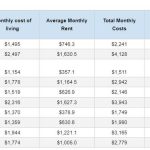Seized years ago by feds at airport
The owner of a trucking company has gotten back from the government the nearly $40,000 federal agents took from him years ago at an airport.
The Institute for Justice explains the money, actually $39,500, has been returned to small business owner Jerry Johnson.
The cash was confiscated when he was at the Phoenix, Arizona, airport in 2020.
There was no reason for the confiscation, except that he was carrying money, the report said.
“Jerry flew to Phoenix with the goal of purchasing a semi-truck for his Charlotte, North Carolina, trucking company in August 2020. At baggage claim, Jerry was questioned by police and his money was seized and subjected to civil forfeiture. An Arizona trial court ruled that he failed to prove the cash was his and, therefore, he could not contest the civil forfeiture of his money. IJ took over Jerry’s case on appeal and in May 2022 the Arizona Court of Appeals held that the lower court’s ruling violated Jerry’s right to due process and that his case needed to be more carefully considered,” the IJ said.
“Jerry’s case potently illustrates the injustice of civil forfeiture even when someone ultimately gets their property back,” said IJ Senior Attorney Dan Alban. “It took 31 months for Jerry to finally get his savings back even though he was never even charged with a crime. In the middle of the COVID pandemic, Jerry had to find a way to keep operating his small trucking business after its working capital was seized while also scraping together money to hire an attorney (before IJ took his case). We’re glad that the money has been returned, but Jerry still needs to be made whole.”
“It’s a blessing to finally have my savings back so that I can invest it in my business,” said Jerry, in a statement released by his lawyers. “That the government could take my money, never charge me with a crime but hold onto my savings for so long is outrageous. It created a tremendous financial burden for me and my family, and there were a lot of business opportunities I’ve missed out on because that money was just sitting in a government account.”
The IJ reported the government returned the money “with less than 0.8% in accrued interest.”
But it refuses to pay attorneys’ fees and interest specified by the law.
The IJ said those parts of the case will continue.
WND reported when the case was developing was being credited as the incentive for a new state law.
The Institute for Justice, which has a record of fighting for consumers in such cash confiscation cases, said at the time the Arizona Court of Appeals had ruled in favor of Johnson.
The decision allowed him to challenge the government’s decision to confiscate his cash, and in fact, the ruling said he’d already documented his ownership.
The IJ’s Alexa Gervasi said, then, “Today’s decision points out the obvious: Jerry Johnson properly proved ownership of his money and has the right to defend it in court. The scales are already tipped in the government’s favor in civil forfeiture, but the lower court went outside the bounds of Arizona law when it forced Jerry to prove his own innocence. We are glad that Jerry will have his day in court to defend against the unjust forfeiture of his life savings.”
In civil forfeiture cases, government agents simply confiscate cash or assets – usually cash. But they often don’t file any charges against the owners, who are forced to go to court to prove the “innocence” of their money to get it returned.
Often that doesn’t happen, and the agencies that confiscate the money get to divide it up.
The state court in Arizona, however, found, “This was a not a trivial or technical error.”
It found the lower court violated Jerry’s right to due process.
“The decision further affirms that ‘Johnson in fact proved he owned the money,’ granting Jerry a complete victory on his appeal,” the report said.
Then, because of the attention given to the case, “the Arizona Legislature overwhelmingly passed HB 2810, a bill to reform civil forfeiture that Gov. Doug Ducey signed into law,” IJ reported.
The changes require a conviction in criminal court to forfeit property in civil court in most instances and ban officers from coercing owners into waiving or relinquishing their rights to property.
The IJ said its program already has fought similar cases in New Orleans, Pittsburgh, Ohio and more.












